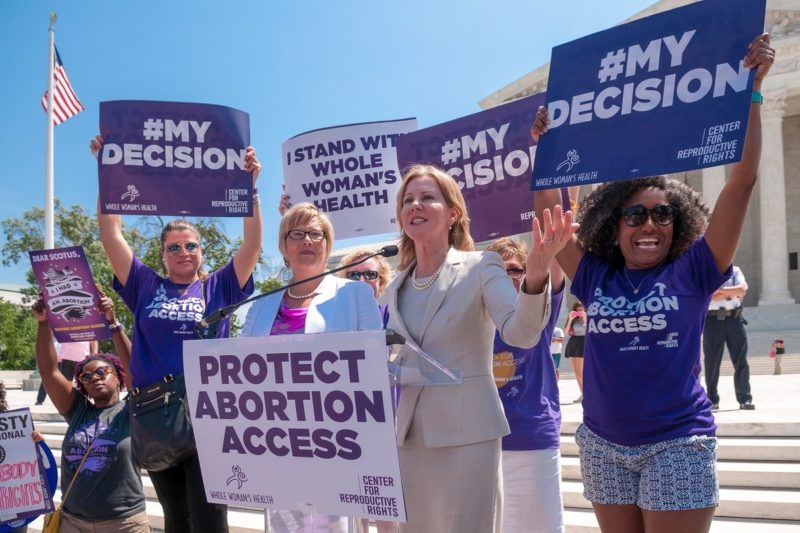Missouri Lawmaker Looks to Repeal Anti-Choice Laws in 2017
State Sen. Jill Schupp (D-Creve Coeur) told Missourinet that the U.S. Supreme Court’s decision in Whole Woman’s Health v. Hellerstedt striking down parts of Texas omnibus anti-choice law HB 2 motivated her to introduce the legislation.

A Missouri lawmaker plans to introduce bills to repeal policies restricting access to abortion care in the state, when the legislative session begins on January 4.
State Sen. Jill Schupp (D-Creve Coeur) told Missourinet that the U.S. Supreme Court’s decision in Whole Woman’s Health v. Hellerstedt striking down parts of Texas omnibus anti-choice law HB 2 motivated her to introduce the legislation.
“Now that we’ve had that precedent spelled out for us, we have some provisions in Missouri law that I know are absolutely obstacles put in place in order to prevent or make [it] very, very difficult for a woman to access her reproductive rights,” Schupp said. “Putting an obstacle in the path of a woman seeking an abortion … is an undue burden and it violates the constitution.”
Alison Dreith, executive director of NARAL Pro-Choice Missouri, told Rewire via email that the Supreme Court’s decision reaffirmed the constitutional right to access legal abortion and has “empowered women to fight back” against anti-choice laws in Missouri.
“NARAL is proud to work alongside Sen. Schupp and our allies to overturn these dangerous laws that do nothing to protect women,” Dreith said.
Schupp’s proposals would repeal two Missouri laws that target the state’s lone abortion clinic.
Current law requires an abortion provider to have admitting privileges at a hospital that offers obstetrical or gynecological care located within 30 miles of the location where the abortion is performed. Abortion clinics in the state must also meet the same standards as outpatient surgical centers.
Another one of Schupp’s proposals will be to repeal the law that requires a pregnant person to complete a 72-hour waiting period prior to an abortion procedure.
State lawmakers on May 15, 2014 passed a bill to increase the waiting period for an abortion from 24 to 72 hours. Gov. Jay Nixon (D) vetoed the legislation, criticizing it for being “extreme and disrespectful.” However, state lawmakers voted to override the governor’s veto, and the law went into effect in October 2014.
“We hope the Missouri legislature will uphold the highest law of the land, and will instead [prioritize] an economic agenda that works for Missouri women and families, including overturning the 72-hour waiting period, which has dramatic effects for women of color, low income, and rural communities,” Dreith said.
Lawmakers in states around the country may be seeking to repeal laws similar to those ruled unconstitutional by the Supreme Court this summer.
